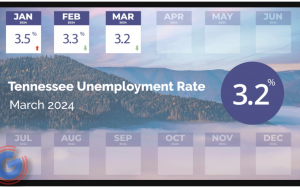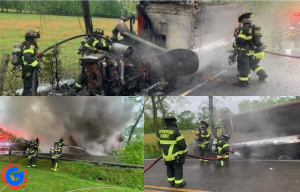The problem of high-risk drinking among college students and young adults is widespread and results in numerous short- and long-term consequences for students, educational institutions, and their surrounding communities.
To address this behavior, the Tennessee Department of Mental Health and Substance Abuse Services (TDMHSAS) funds the Coalition for Healthy and Safe Campus Communities (CHASCo) to provide prevention services on a number of college and university campuses throughout the state.
The National Institute on Alcohol Abuse and Alcoholism’s (NIAAA) “Update on College Drinking” report (available online at www.niaaa.nih.gov) shows disturbing increases in binge/unhealthily drinking, driving while intoxicated, and alcohol-related deaths and injuries. The survey also indicates that college students continue to put themselves at risk with their frequency and level of alcohol consumption. Additionally, students who don’t drink are exposed to alcohol-use consequences such as increased traffic crashes, assaults, property damage, and other crimes.
“College and university orientation programs offer an opportunity to address campus policies, individual responsibility, performance expectations, and community values related to substance use and abuse,” says TDMHSAS Commissioner E. Douglas Varney, “but university administrators can’t do it all.”
Transitioning into college is challenging, with approximately one-third of first-year students failing to enroll for a second year. The first six weeks of a freshman’s college experience are critical for predicting overall academic success. Student expectations and social pressures, combined with unstructured free time, can precipitate excessive alcohol consumption. Additionally, college students frequently have exaggerated perceptions of alcohol use: Tennessee college students who were surveyed estimate peer alcohol use at more than twice the level of actual rates for their campus. As a result of these pressures, expectations, and misperceptions, research indicates that students may increase their own alcohol use. Ensuring that students understand the truth of alcohol use in their campus community is an important preventive measure.
Contrary to popular belief, parents maintain a significant amount of influence as their child transitions to college. Advances in communication technology make frequent contact between parents and college students easy and affordable; also, studies show that communication (particularly on weekends) is a prudent protective strategy that parents can employ to reduce dangerous drinking behaviors. Parents should make sure that their child understands the expectations for their behavior and the consequences for underage drinking, public drunkenness, using a fake ID, driving under the influence, assault, and other alcohol-related offenses. Parents should also become familiar with the name of their child’s academic advisor and the on-campus services available to students for assistance.
TDMHSAS and CHASCo are proud that the strategies being implemented on Tennessee’s campuses have resulted in reported high-risk drinking rates for students and young adults (age 18-26) significantly lower than the national average. According to Tennessee Regional Behavioral Health Prevalence Estimates (available at the TDMHSAS website online at www.tn.gov/mental/policy/tdmhsas_data_rpt.shtml), Tennessee students and young adults indicate a past-month alcohol high-risk use rate of 33.8 percent, well below the national rate of 41 percent.
While this is a significant achievement, it still shows that one-third of Tennessee students and young adults drank to excess creating greater risk for themselves and those around them. With additional parental and community support, Tennessee students will be safer and more productive.
The campuses where CHASCo will provide prevention services for the next three years are:
In 2013:
- Baptist College of Health Sciences, Memphis
- Christian Brothers University, Memphis
- East Tennessee State University, Johnson City
- Lane College, Jackson
- Lemoyne-Owen College, Memphis
- Lipscomb University, Nashville
- Pellissippi State Community College, Knoxville
- Tennessee Tech University, Cookeville
- Tusculum College, Greeneville
- University of Tennessee at Martin
- Vol State Community College, Gallatin
- Walters State Community College, Morristown
In 2014:
- Aquinas College, Nashville
- Belmont University, Nashville
- Carson-Newman University, Jefferson City
- Cumberland University, Lebanon
- Maryville College, Maryville
- Motlow State Community College, Tullahoma
- Northeast State Community College, Blountville
- Rhodes College, Memphis
- Sewanee: The University of the South, Sewanee
- Tennessee State University, Nashville
- University of Memphis
- University of Tennessee at Knoxville
In 2015:
- Austin Peay State University, Clarksville
- Bethel University, McKenzie
- Freed-Hardeman University, Henderson
- Lincoln Memorial University, Harrogate
- Middle Tennessee State University, Murfreesboro
- Southern Adventist University, Collegedale
- Tennessee Technology Center at Crump
- Tennessee Wesleyan College, Athens
- Trevecca Nazarene University, Nashville
- Union University, Jackson
- University of Tennessee at Chattanooga
- Watkins College of Art & Design, Nashville












